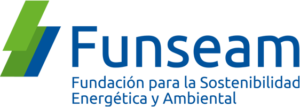Reaching the decarbonisation objectives outlined in the energy transition requires focusing all efforts on regulatory matters. The advances in technology innovation have historically been ahead of those in regulatory innovation. Whenever regulatory advances have been ahead, they have created administrative burdens and entry costs for the market. These circumstances discourage potential new business models that would usually emerge from novel technological developments beneficial to the stakeholders in the energy transition.
In this context, energy regulatory sandboxes (ERS) arise as supporting tools for innovation in the energy sector. They aim to provide an experimental testing environment to stimulate and promote innovation to develop new business models to avoid regulatory and market barriers. Regulatory sandboxes can provide stable conditions for a limited period and geographical application. They can also open or repeal regulations for developing new energy products or services in a real-world environment avoiding the current rules that ensure centralized works.
Energy transition does not have only one path to decarbonize the economy, but its implementation needs to minimize adverse effects for all actors. It faces multiple challenges depending on the geographical area characteristics and the specific energy vector. In this sense, the application of regulatory sandboxes is related to solutions that deal with new challenges of the energy sector.
This workshop focused on how this new tool supports innovation in the energy transition and on analysing the innovative experimentation tools available and their application in Europe. A round table with regulatory authorities, companies, and research centres provided leads on the relevance of Energy Regulatory Sandboxes to facilitate the market launch of innovations helpful to move towards a decarbonized economy.
This Workshop runned as part of the European cooperation TR@NSNET project. This European project, financed by FEDER funds, and brought to fruition by the consortium led by the French Toulouse III University – Paul Sabatier includes the participation of the Foundation for Energy Sustainability (Funseam), the Polytechnic University of Madrid, the University of Lisbon, the University of Beira Interior, the University of La Rochelle, the CIRCE Foundation, and the Technological Corporation of Andalusia (CTA). It aims to contribute to the challenge of ecological transition by defining a new model of Living Lab in the context of open innovation.
AGENDA
4:00-4:15 PM WELCOME AND INTRODUCTION
- Joan Batalla, Director-General of Funseam
- Georges Zissis, Transnet Project Director. PRESENTATION
4:15-5:00 PM REGULATORY EXPERIMENTATION IN ENERGY
- Leonardo Meeus, Executive Deputy Director, Online Affairs of the Florence School of Regulation at the European University Institute. PRESENTATION
5:00-5:30 PM REPORT ON ENERGY REGULATORY SANDBOXES
- Manuel Villa-Arrieta, Researcher of Funseam. PRESENTATION
5:30-6:30 PM ROUNDTABLE: ANALYSING THE ERS FROM DIFFERENT POINTS OF VIEW
- Elena de Benavides, Head of Corporate Venturing and Innovation Ecosystems at Elewit. PRESENTATION
- Rafael Sánchez, General Manager of Andalusia and Extremadura of Endesa. PRESENTATION
- Enrique Morgades, Secretary-General of Futured. PRESENTATION
Chairman: Germán López, Head of the Energy sector (Technological Corporation of Andalusia)





